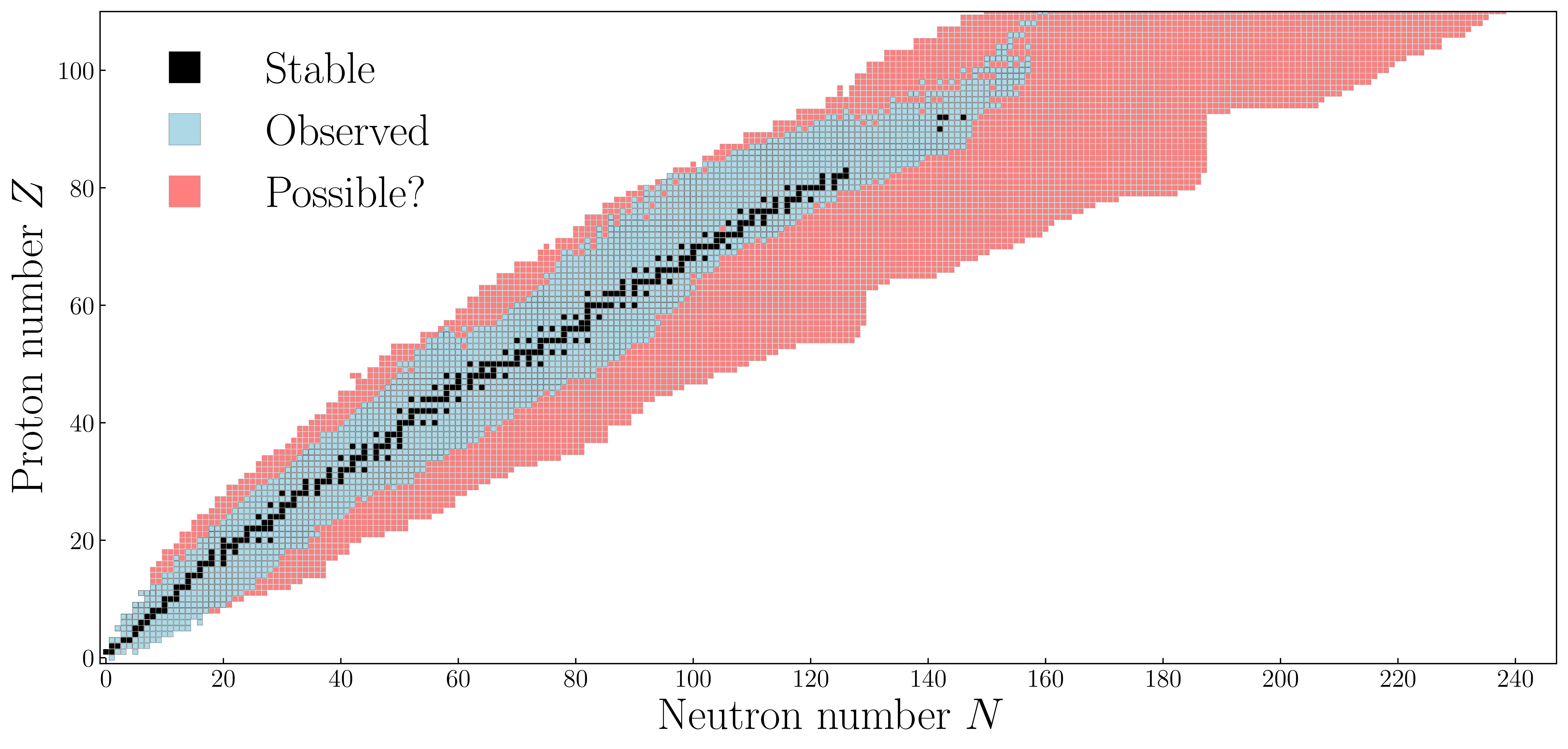- The nuclear chart

Welcome to my homepage!
My name is Wouter; I am a researcher of the F.R.S.-FNRS and
work at the Institute of Astronomy and Astrophysics
which is part of the Université Libre de Bruxelles (ULB) .
I study atomic nuclei, the tiny systems composed of protons and neutrons at the
heart of molecules. There are multiple thousands of different nuclei, a number
large enough that people generally talk about the chart of nuclei which is
depicted above. This chart truly represents a zoo of different behaviors: adding
or subtracting just one single proton or neutron can drastically alter many
properties of the nucleus, from its size to how it reacts with other nuclei.
A few nuclei are stable and occur naturally on earth (though some are much rarer than others). The others are all radioactive,
i.e. they exist only for a certain amount of time before turning through a variety
of channels into stable nuclei. On earth, we can synthesise these radioactive
elements in accelerators, and scientists have so far created about 2500 exotic
nuclei. There are however good reasons to think that several thousands more can exist,
a vast region of intriguing systems about which we know little to nothing!
Aside from the intrinsic interest of exploration, the properties of the nuclei
in this unknown region of the chart are also relevant to astrophysics: extreme
environments such as supernovae or star collisions create conditions in which
exotic nuclei unknown on earth can be created. If we want to study these
astrophysical phenomena, we have to start from a thorough understanding of
nuclear structure.
I try to model the structure of the thousands nuclei in the chart, known and
unknown, all within a single framework. This is a very challenging task, as
we do not have a closed expression for the interaction between nucleons and
even if we had, the relevant equations would be impossible to solve! So, what I
do is build simplified models that try to incorporate as much as possible of
nuclear physics, while keeping the equations sufficiently tractable
(for supercomputers, not puny humans) for application to thousands of nuclei.
This website functions as a bit of archive: it contains a list of my
publications, the slides of all
my presentations since 2017 and some documentation
on the computer tools I've written. You can read a bit more about my
research interests and me as a person on the about-page
and find a complete Curriculum Vitae .
Updates
- 23/04/2024 - I presented at the annual meeting of the ELEMENTS research cluster in Frankfurt, Germany.
- 19/12/2023 - Our work on the center-of-mass correction is out now! link .
- 19/12/2023 - A new preprint is available: arXiv:2402.12107.
- 19/12/2023 - A new preprint is available: arXiv:2312.11040.
- 04/12/2023 - I talked about our work comparing models to experimental data at the MANASLU workshop in Mons (BE).
- 22/11/2023 - I presented the BSkG models at an ESNT workshop in Saclay (FR). Slides can be found on the presentations page.
- 20/11/2023 - We published a new large-scale model, BSkG3!
- 10/10/2023 - A new preprint is available: arXiv:2310.05090.
- 02/10/2023 - My first day as a permanent researcher at the F.R.S.-FNRS.
- 27/09/2023 - Three new conference proceedings came out, check the publications page!
- 01/07/2023 - Launch of my new website